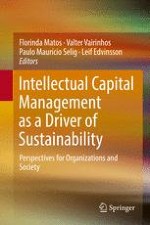2019 | OriginalPaper | Chapter
9. The Role of an Eco-Knowledge Hub in Leveraging Intellectual Capital Green Governance
Authors : Alexandru Capatina, Gianita Bleoju, Adrian Micu, George Bogdan Dragan
Published in: Intellectual Capital Management as a Driver of Sustainability
Publisher: Springer International Publishing
Activate our intelligent search to find suitable subject content or patents.
Select sections of text to find matching patents with Artificial Intelligence. powered by
Select sections of text to find additional relevant content using AI-assisted search. powered by
